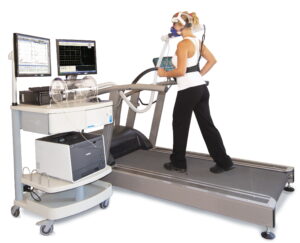MTHFR, Hashimoto’s and Nutrients
"One of the key things to note is that this gene variation also prevents people from properly methylating, which is one of the body’s key detox processes that helps them get rid of toxins. Methylation impairment can result in an impaired ability to clear out certain toxins such as mercury and arsenic, and may lead […]
Why Do Antibiotics Make Me Feel Better?
"Many PWCs have experienced improvement of symptoms following antibiotic treatment for other conditions. The natural questions then are why? And should I continue to take antibiotics? The first answer is simple. Antibiotics may “work” in more than one way. Yes, they might be treating some hidden infection in the body. But antibiotics have other ameliorating […]
CPET and the Physiology of ME/CFS
"Post-exertional malaise (PEM) is a hallmark symptom of ME/CFS. PEM is an exacerbation of symptoms that emerge when a patient exerts physically, cognitively or even emotionally beyond a threshold intensity. PEM can occur during or soon after exertion, or within hours or even a couple of days after exertion in patients with ME/CFS." https://neuroimmune.cornell.edu/research/physiology/ https://neuroimmune.cornell.edu/research/physiology/
What is the MTHFR Mutation?
"What is the MTHFR Mutation? MTHFR (or methylenetetrahydofolate reductase) is an enzyme required to convert folate to methionine, which is then used in the production of necessary amino acids and other compounds. When MTHFR genes are mutated, then MTHFR is not produced well, homocysteine (thought to be involved in atherosclerosis and other health issues) builds […]
Food Sensitivities
" Many PWCs report intolerance to both gluten (wheat products, barley, and rye) as well as dairy products. These intolerances are rarely caused by true allergies to gluten (celiac disease or sprue) or dairy (milk protein allergy). Researchers in Belgium have also suggested that many PWCs are intolerant of fructose as well. Consider avoiding each […]
Do I Have to Live Like This?!
'ME/CFS is considered a chronic illness, but longitudinal studies suggest that 17-64% of adult PWCs improve, less than 10% fully recover. The improvement rate is even better for adolescents with ME/CFS. The current standard of therapy is to treat sleep and pain issues first, then address co-morbidities or other health issues. Dr. Bruce Campbell and […]
Why Do I Wake Up Exhausted?
"There are at least four core symptoms in ME/CFS: pain, cognitive dysfunction, fatigue or post-exertional malaise, and non-restorative sleep. Thus, awakening unrefreshed is one of the cardinal symptoms of ME/CFS, and one of the last symptoms to resolve as one improves. You will probably wake up tired whether you sleep 4 hours or 14. Nevertheless, primary sleep […]
Make a daily low level exercise program a priority by Dr. Charles Lapp
While Dr. Charles Lapp has good information to share about ME/CFS he is a proponent of exercise the exercise therapy GET, which has been proven to be potentially dangerous for PWM. In this article he states... "Make a daily low level exercise program a priority." Please be very cautious taking this advice from any doctor […]
What about Exercise? by Physios (Physical Therapists) for ME
“Do not offer people with ME/CFS physical activity or exercise programmes that use fixed incremental increases, based on deconditioning and exercise avoidance theories as perpetuating ME/CFS.” https://www.physiosforme.com/what-about-exercise
Myalgic Encephalomyelitis/Chronic Fatigue Syndrome: Using Graded Exercise to Get More Energy
It's appalling that GET is still being recommended. Kaiser Permanente gets a whole whopping rating of . https://wa.kaiserpermanente.org/kbase/topic.jhtml?docId=zx1021



